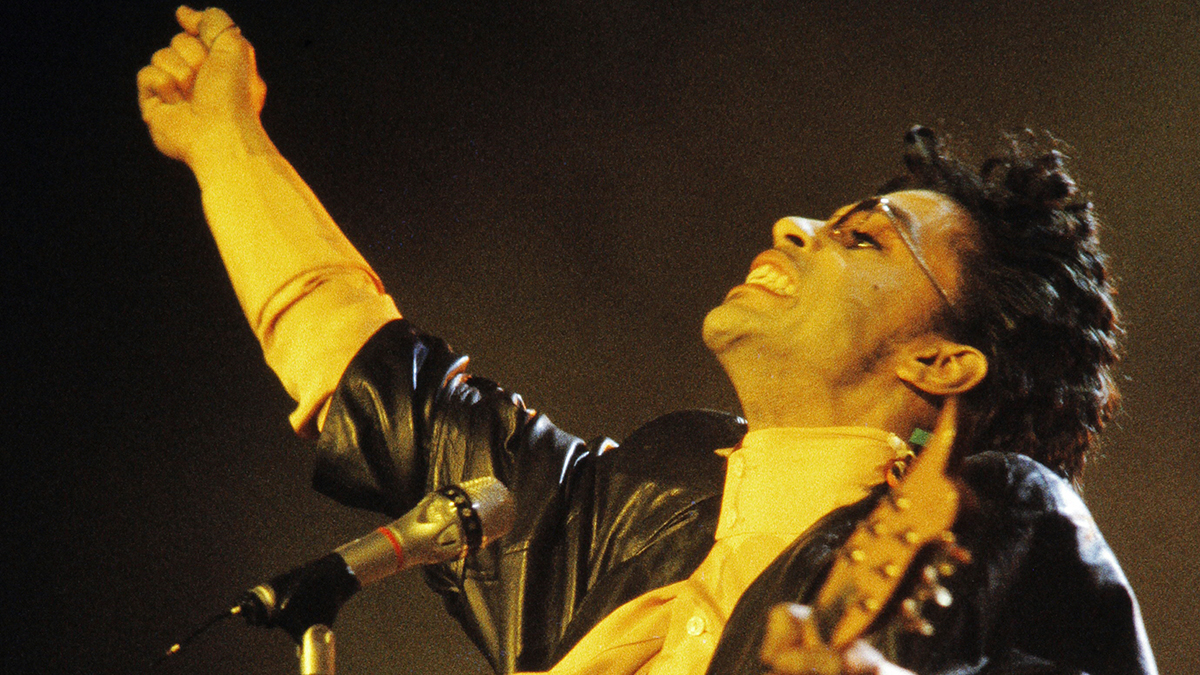A faulty mixing console meant that Prince’s The Ballad of Dorothy Parker was recorded ‘wrong’, but he used it anyway
“I kept thinking, ‘Isn’t he noticing that there’s something weird with this?’” recalls engineer Susan Rogers

The old maxim that ‘if it sounds right, it is right’ doesn’t always ring true - particularly if you’re working with a shonky monitoring setup - but there are certainly times when happy accidents can yield great results. Take Prince’s The Ballad of Dorothy Parker - the fourth track on side 1 of the Sign O’The Times album, which was released 33 years ago this week - which is a fine example of a track being recorded ‘wrong’ but sounding very right indeed.
The story goes that, back in 1986, this was the first song that Prince recorded at his new Galpin Blvd Home Studio in Chanhassen, Minnesota. Originally intended for his Dream Factory album - the history of which is a whole other story - Prince also had it in mind as a single, though this never happened.
Speaking to the Red Bull Music Academy, Prince’s engineer Susan Rogers revealed that, at the time when Prince came to start recording Dorothy Parker, installation of the custom console in the new studio hadn’t yet been completed, and this is why the track ended up sounding like it does.
“The fellow who designed this console, whose name was Frank De Medio, came in from Los Angeles,” Rogers explained. “He was hooking it all up and Prince couldn’t take it anymore. He was just dying to record, and he told me to send Frank home. He says, ‘Just send him home. I just got to work.’”
An impatient Prince immediately got down to business, telling Rogers to get “fresh tape”. However, as soon as recording started, the engineer immediately realised that something was wrong.
“As soon as I heard it, I realised, ‘Oh my God, there is no high end,’” Rogers recalls. “It sounded like there were low-pass filters on everything. First, I was thinking it was just one track. It wasn’t. It was the whole console.”
In a state of panic, Rogers hoped that Prince would take a break so that she could investigate the problem, but no such luck.
Want all the hottest music and gear news, reviews, deals, features and more, direct to your inbox? Sign up here.
“I’m thinking, ‘Oh, please stop, so I can get out the voltmeter and see what’s going on with this console.’ But he wouldn’t stop, and he just kept going, and going, and going. It was like a baby eating baby food. It’s like, when’s it going to stop? He just kept going, and going, and going.”
Then, the moment of truth: “We finished the song, and then we mixed it. He didn’t stop, which was typical of him. I kept thinking, ‘Isn’t he noticing that there’s something weird with this?’ We finally mixed the song. It was like a day later, and then he gets up and he’s all happy, because he got the song then. He goes, ‘That was great. Good’. And then he goes, ‘This console’s nice. It’s kind of dull, isn’t it?’
For Prince, though, this wasn’t a problem, and he went away happy. Rogers wasn’t going to leave it at that, though, so she set about investigating the issue with the console.
“I take out the voltmeter and I finally get to check the power supplies,” she recalls. “As some of you may know, consoles have bipolar power supplies. There’s usually a plus-or-minus 15, or a plus-or-minus 24 depending on the manufacturer, and one whole power supply was completely down, so it was only swinging half the current that it could normally swing. It had no high end, because it couldn’t swing the current fast enough to give us high end, so the song ends up sounding like it’s kind of underwater. I was able to fix it [the console], but only after the fact. I wasn’t able to fix it for this song.”
History tells us, though, that it didn’t need ‘fixing’: Dorothy Parker’s dull sound has become part of its charm, and most listeners will never know that this ‘effect’ wasn’t used on purpose.
‘If it sounds wrong, it can still be right,’ in other words.



I’m the Deputy Editor of MusicRadar, having worked on the site since its launch in 2007. I previously spent eight years working on our sister magazine, Computer Music. I’ve been playing the piano, gigging in bands and failing to finish tracks at home for more than 30 years, 24 of which I’ve also spent writing about music and the ever-changing technology used to make it.